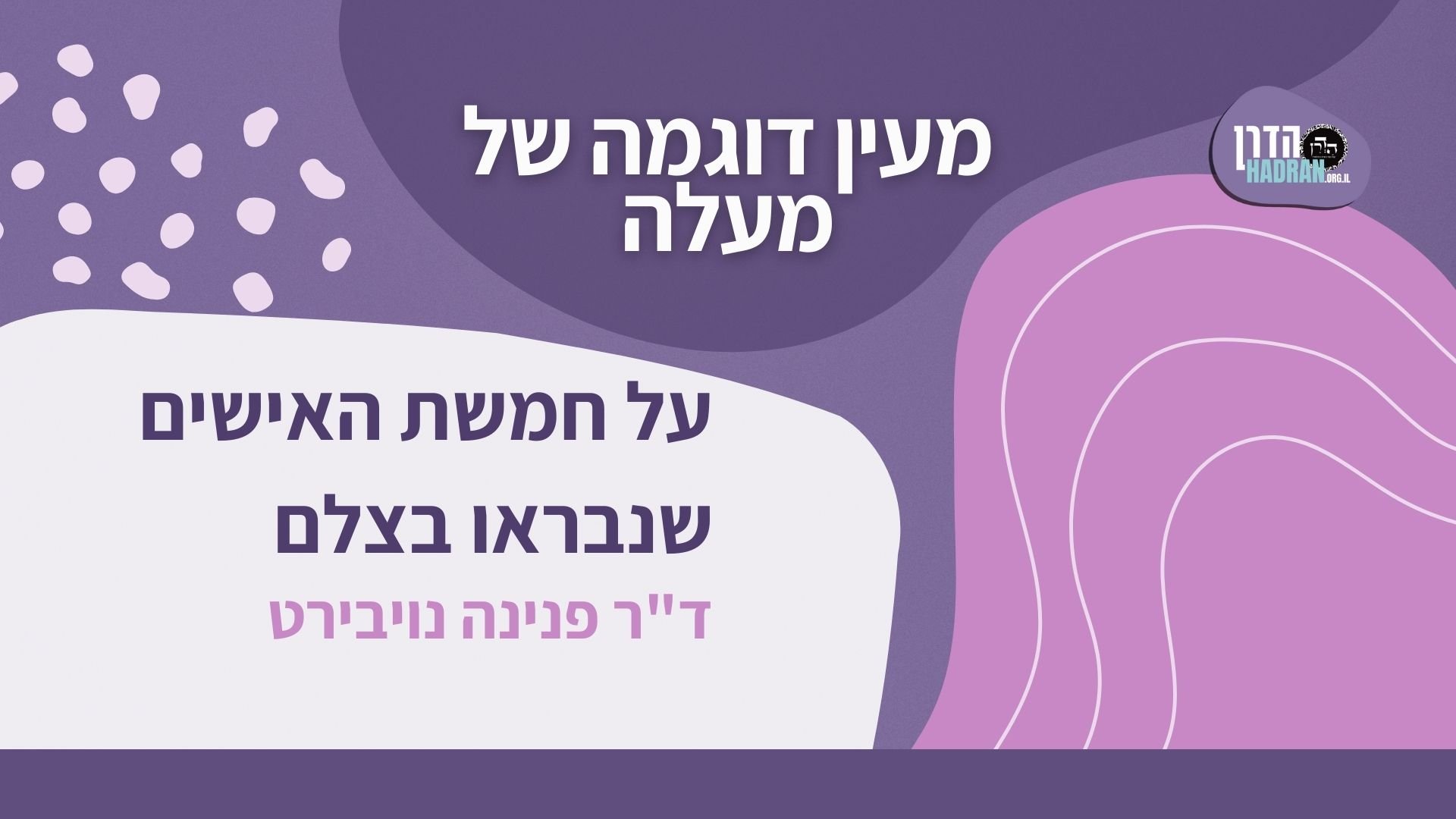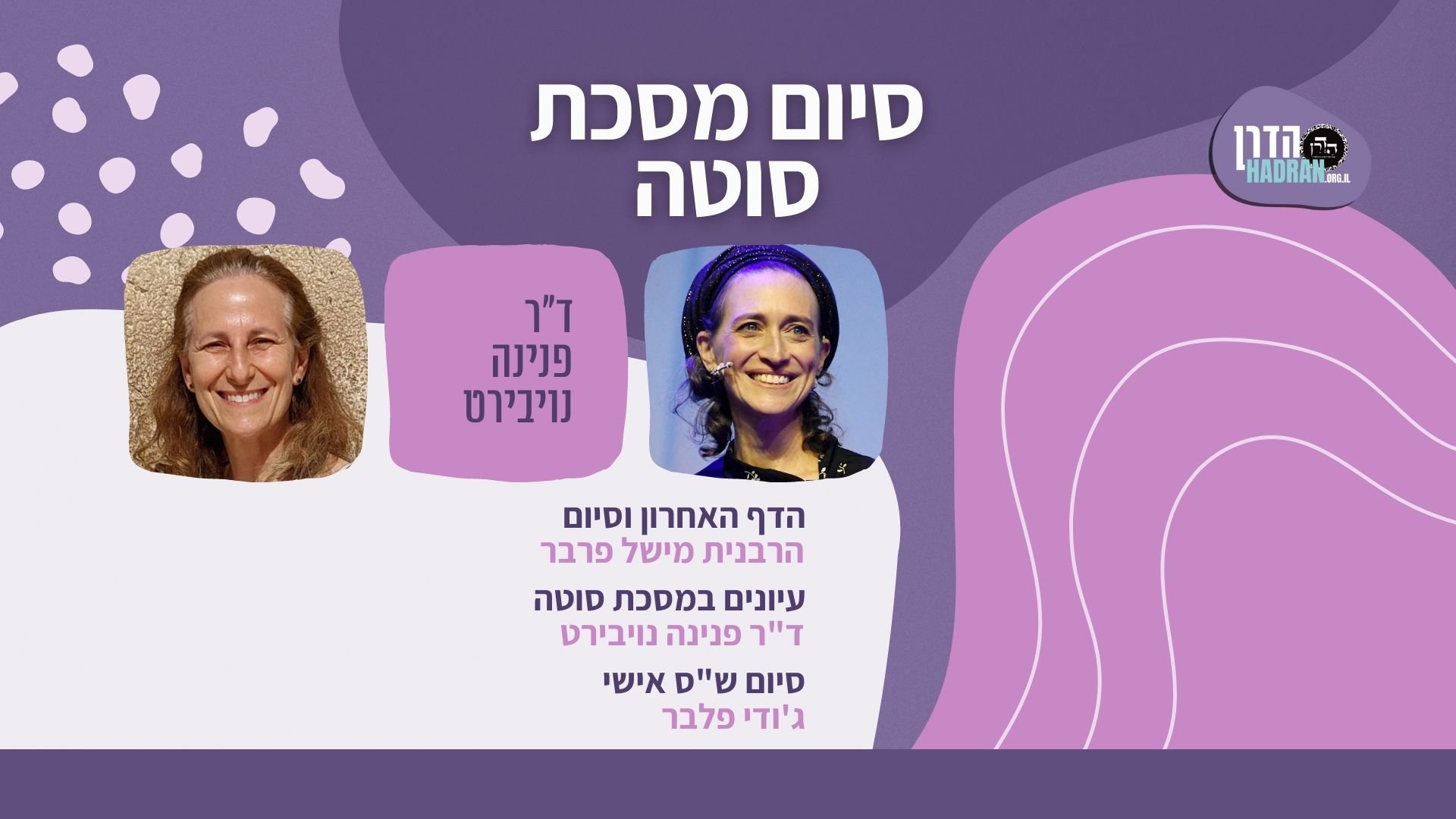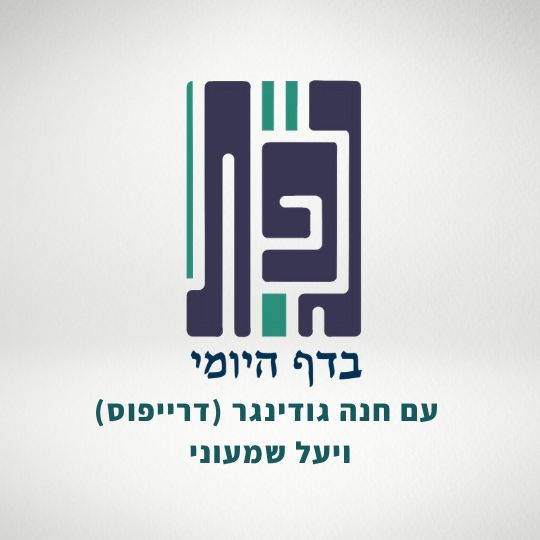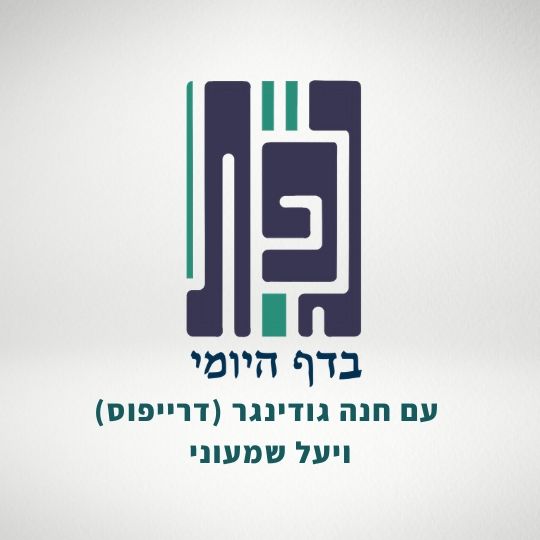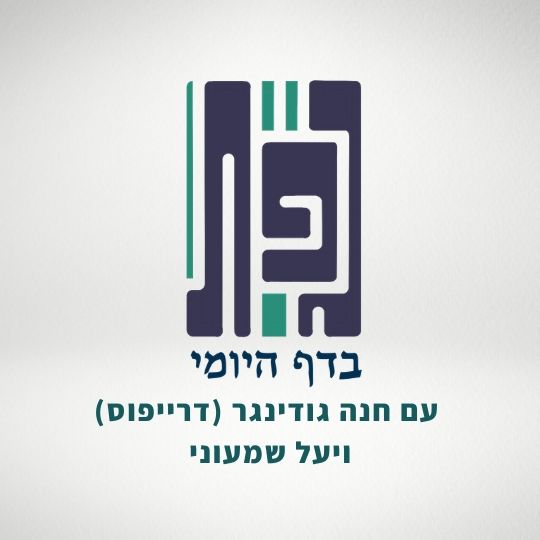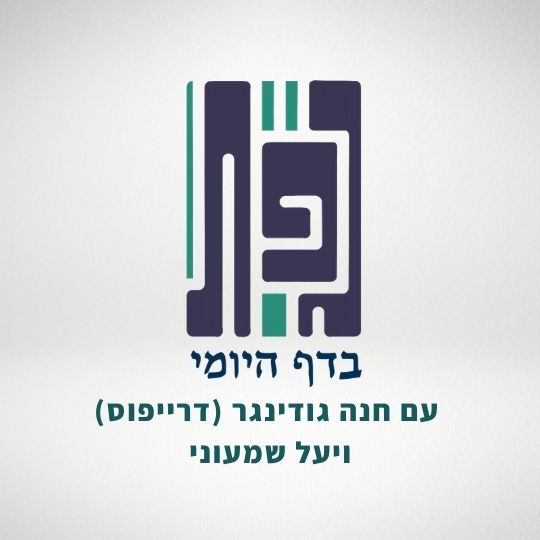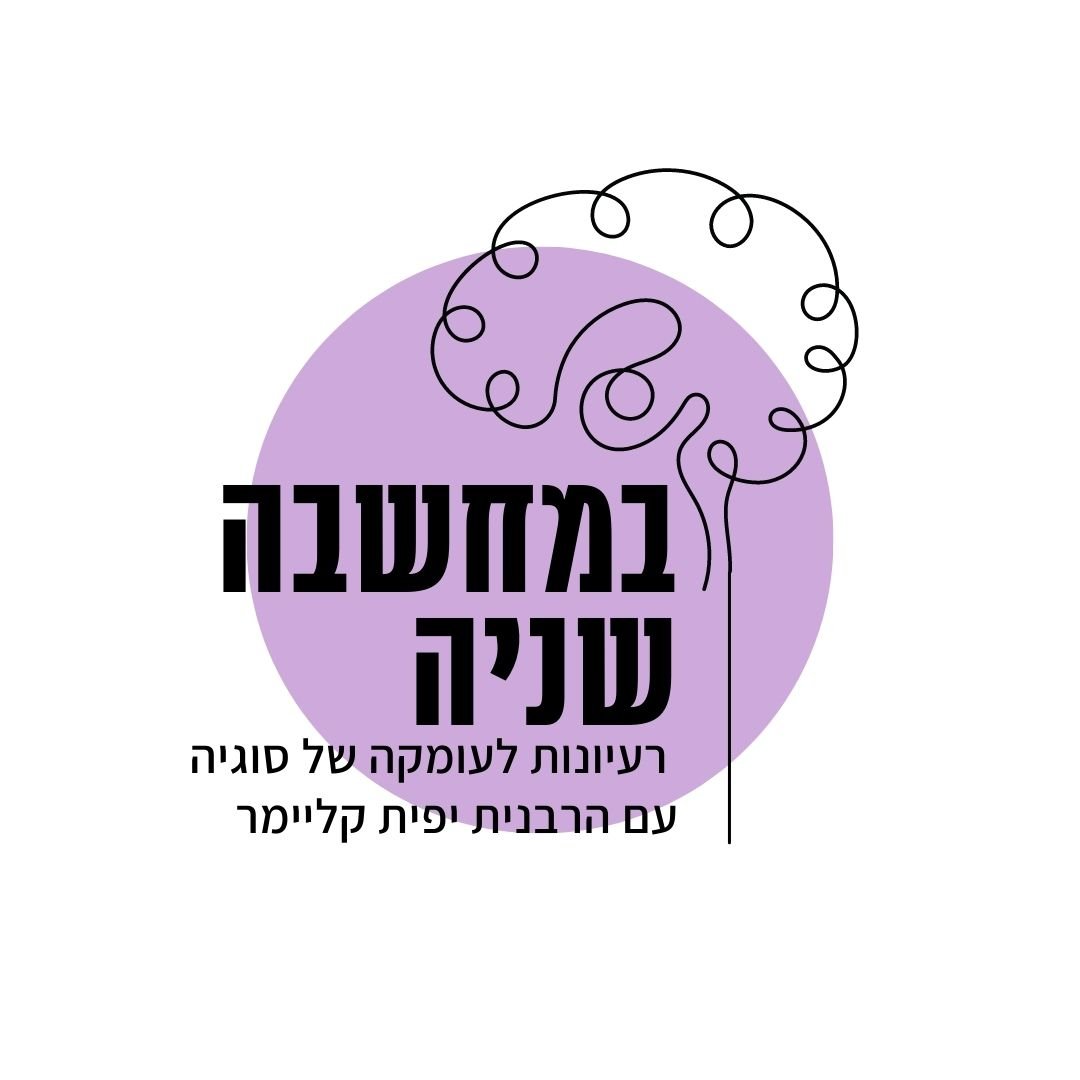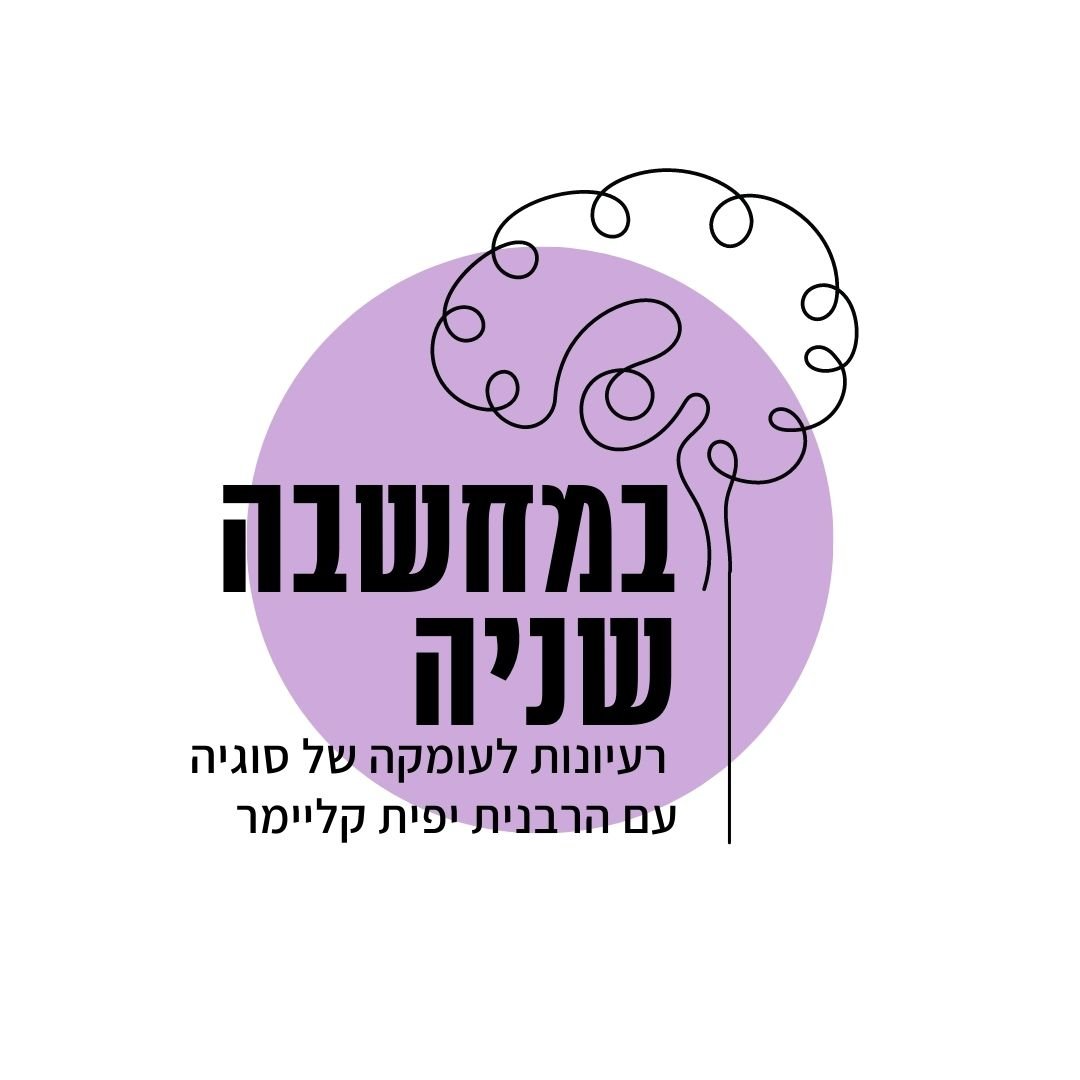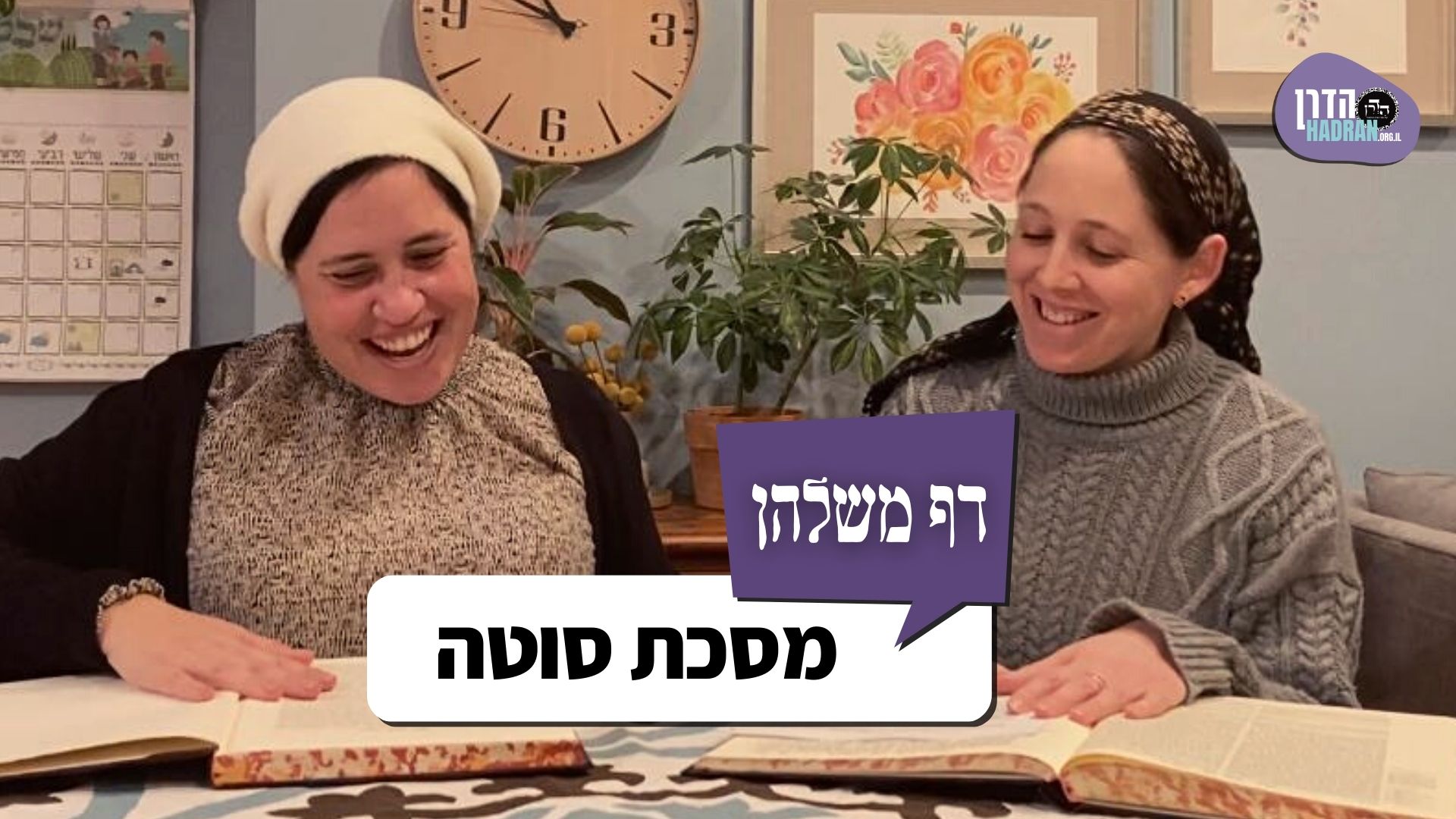סוטה מב
״וַיְהִי הוּא בְּשַׁעַר בִּנְיָמִן וְשָׁם בַּעַל פְּקִדֻת וּשְׁמוֹ יִרְאִיָּה בֶּן שֶׁלֶמְיָה בֶּן חֲנַנְיָה וַיִּתְפֹּשׂ אֶת יִרְמְיָהוּ הַנָּבִיא לֵאמֹר אֶל הַכַּשְׂדִּים אַתָּה נֹפֵל. וַיֹּאמֶר לוֹ יִרְמְיָהוּ שֶׁקֶר אֵינֶנִּי נֹפֵל אֶל הַכַּשְׂדִּים וְגוֹ׳״, וּכְתִיב: ״וְיִתְפֹּשׂ יִרְמְיָהוּ וַיְבִאֵהוּ אֶל הַשָּׂרִים״.
“And when he was in the gate of Benjamin, a captain of the ward was there, whose name was Irijah, the son of Shelemiah, the son of Hananiah; and he laid hold on Jeremiah the prophet, saying: You shall fall to the Chaldeans. Then Jeremiah said: It is false; I shall not fall to the Chaldeans” (Jeremiah 37:13–14). And it is then written: “So Irijah laid hold on Jeremiah, and brought him to the princes” (Jeremiah 37:14). Irijah was the grandson of Hananiah, and Jeremiah was punished by falling into his hands because he had flattered his grandfather.
וְאָמַר רַבִּי אֶלְעָזָר: כׇּל עֵדָה שֶׁיֵּשׁ בָּהּ חֲנוּפָּה — מְאוּסָה כְּנִדָּה, שֶׁנֶּאֱמַר: ״כִּי עֲדַת חָנֵף גַּלְמוּד״, שֶׁכֵּן בִּכְרַכֵּי הַיָּם קוֹרִין לְנִדָּה גַּלְמוּדָה. מַאי ״גַּלְמוּדָה״ — גְּמוּלָה מִבַּעְלָהּ.
And Rabbi Elazar says: Any congregation in which there is flattery is as repulsive as a menstruating woman, as it is stated: “For a flattering congregation shall be desolate [galmud]” (Job 15:34), and in the cities overseas they call a menstruating woman galmuda. What is the meaning of the word galmuda? It means separated [gemula] from her husband [mibbala].
וְאָמַר רַבִּי אֶלְעָזָר: כׇּל עֵדָה שֶׁיֵּשׁ בָּהּ חֲנוּפָּה — לְסוֹף גּוֹלָה, כְּתִיב הָכָא: ״כִּי עֲדַת חָנֵף גַּלְמוּד״, וּכְתִיב הָתָם: ״וְאָמַרְתְּ בִּלְבָבֵךְ מִי יָלַד לִי אֶת אֵלֶּה וַאֲנִי שְׁכוּלָה וְגַלְמוּדָה גֹּלָה וְסוּרָה וְגוֹ׳״.
And Rabbi Elazar says: Any congregation in which there is flattery is ultimately exiled. It is written here: “For a flattering congregation shall be desolate [galmud]” (Job 15:34), and it is written there: “Then you will say in your heart: Who has begotten me these, seeing I have been bereaved of my children, and am solitary [galmuda], an exile, and wandering?” (Isaiah 49:21). The verse states: “An exile,” as an appositive to “galmuda,” indicating that they are the same.
אָמַר רַבִּי יִרְמְיָה בַּר אַבָּא: אַרְבַּע כִּיתּוֹת אֵין מְקַבְּלוֹת פְּנֵי שְׁכִינָה: כַּת לֵיצִים, וְכַת חֲנֵיפִים, וְכַת שַׁקָּרִים, וְכַת מְסַפְּרֵי לָשׁוֹן הָרָע.
Rabbi Yirmeya bar Abba says: Four classes of people will not greet the Divine Presence: The class of cynics, and the class of flatterers, and the class of liars, and the class of slanderers.
כַּת לֵיצִים — דִּכְתִיב: ״מָשַׁךְ יָדוֹ אֶת לֹצְצִים״. כַּת חֲנֵיפִים — דִּכְתִיב: ״כִּי לֹא לְפָנָיו חָנֵף יָבוֹא״. כַּת שַׁקָּרִים — דִּכְתִיב: ״דֹּבֵר שְׁקָרִים לֹא יִכּוֹן לְנֶגֶד עֵינָי״.
The proof for this statement is as follows: The class of cynics, as it is written: “He draws His hand from cynics” (Hosea 7:5), i.e., God does not want to be in their presence; the class of flatterers, as it is written: “That a flatterer cannot come before Him” (Job 13:16); the class of liars, as it is written: “He who speaks falsehood shall not dwell before My eyes” (Psalms 101:7).
כַּת מְסַפְּרֵי לָשׁוֹן הָרָע — דִּכְתִיב: ״כִּי לֹא אֵל חָפֵץ רֶשַׁע אָתָּה לֹא יְגֻרְךָ רָע״, צַדִּיק אַתָּה ה׳ — לֹא יָגוּר בִּמְגוּרְךָ רָע.
The class of slanderers will not greet the Divine Presence, as it is written: “For You are not a god who has pleasure in wickedness, evil shall not sojourn with You” (Psalms 5:5), which means: You, the Lord, are righteous and evil shall not dwell with You in Your dwelling place. “Evil” here is referring to slanderers, as is evident from the continuation of the chapter, which states: “For there is no sincerity in their mouth; their inward part is a yawning gulf, their throat is an open tomb, they make smooth their tongue” (Psalms 5:10).
הֲדַרַן עֲלָךְ אֵלּוּ נֶאֱמָרִין
מְשׁוּחַ מִלְחָמָה בְּשָׁעָה שֶׁמְּדַבֵּר אֶל הָעָם — בִּלְשׁוֹן הַקּוֹדֶשׁ הָיָה מְדַבֵּר, שֶׁנֶּאֱמַר: ״וְהָיָה כְּקָרׇבְכֶם אֶל הַמִּלְחָמָה וְנִגַּשׁ הַכֹּהֵן״ — זֶה כֹּהֵן מְשׁוּחַ מִלְחָמָה, ״וְדִבֶּר אֶל הָעָם״ — בִּלְשׁוֹן הַקּוֹדֶשׁ.
MISHNA: With regard to the priest who was anointed for war, at the time that he would speak to the nation, he would speak to them in the sacred tongue, Hebrew, as it is stated: “And it shall be, when you draw near to the battle, that the priest shall approach and speak to the people” (Deuteronomy 20:2). This priest identified in the verse is the priest anointed for war, the priest who is inaugurated specifically to serve this function. “And speak to the people”; he addresses them in the sacred tongue, Hebrew.
״וְאָמַר אֲלֵיהֶם שְׁמַע יִשְׂרָאֵל וְגוֹ׳ עַל אוֹיְבֵיכֶם״ — וְלֹא עַל אֲחֵיכֶם, לֹא יְהוּדָה עַל שִׁמְעוֹן וְלָא שִׁמְעוֹן עַל בִּנְיָמִין. שֶׁאִם תִּפְּלוּ בְּיָדָם יְרַחֲמוּ עֲלֵיכֶם, כְּמָה שֶׁנֶּאֱמַר: ״וַיָּקֻמוּ הָאֲנָשִׁים אֲשֶׁר נִקְּבוּ בְשֵׁמוֹת וַיַּחֲזִיקוּ בַשִּׁבְיָה וְכׇל מַעֲרֻמֵּיהֶם הִלְבִּישׁוּ מִן הַשָּׁלָל וַיַּלְבִּשׁוּם וַיַּנְעִלוּם וַיַּאֲכִלוּם וַיַּשְׁקוּם וַיְסֻכוּם וַיְנַהֲלוּם בַּחֲמֹרִים לְכׇל כּוֹשֵׁל וַיְבִיאוּם יְרֵחוֹ עִיר הַתְּמָרִים אֵצֶל אֲחֵיהֶם וַיָּשׁוּבוּ שֹׁמְרוֹן וְגוֹ׳״. עַל אוֹיְבֵיכֶם אַתֶּם הוֹלְכִים, שֶׁאִם תִּפְּלוּ בְּיָדָם אֵין מְרַחֲמִין עֲלֵיכֶם.
The Torah dictates the priest’s address: “And he shall say to them: Hear Israel, you draw near today to battle against your enemies; let not your heart faint; fear not, nor be alarmed, and do not be terrified of them” (Deuteronomy 20:3). The priest expounds: “Against your enemies” and not against your brothers. This is not a war of the tribe of Judah against Simon and not Simon against Benjamin, such that if you fall into their hands your brothers will have mercy on you, as it is stated with regard to a war between Judah and Israel: “And the men that have been mentioned by name rose up, and took the captives, and with the spoil clothed all that were naked among them, and arrayed them, and shod them, and gave them to eat and to drink, and anointed them, and carried all the feeble of them upon donkeys, and brought them to Jericho, the city of palm trees, unto their brethren; then they returned to Samaria” (II Chronicles 28:15). Rather, you are marching to war against your enemies, and if you fall into their hands, they will not have mercy on you.
״אַל יֵרַךְ לְבַבְכֶם אַל תִּירְאוּ וְאַל תַּחְפְּזוּ וְגוֹ׳״. ״אַל יֵרַךְ לְבַבְכֶם״ — מִפְּנֵי צׇהֳלַת סוּסִים וְצִחְצוּחַ חֲרָבוֹת, ״אַל תִּירְאוּ״ — מִפְּנֵי הַגָּפַת תְּרִיסִין וְשִׁפְעַת הַקַּלְגַּסִּין, ״אַל תַּחְפְּזוּ״ — מִקּוֹל קְרָנוֹת, ״אַל תַּעַרְצוּ״ — מִפְּנֵי קוֹל צְווֹחוֹת.
The priest continues: “Let not your heart faint; fear not, nor be alarmed, and do not be terrified of them” (Deuteronomy 20:3). “Let not your heart faint” due to the neighing of horses and the sharpening of the enemy’s swords. “Fear not” due to the knocking of shields [terisin] and the noise of their boots [calgassin]. “Nor be alarmed” by the sound of trumpets. “Do not be terrified” due to the sound of shouts.
״כִּי ה׳ אֱלֹהֵיכֶם הַהֹלֵךְ עִמָּכֶם״. הֵם בָּאִין בְּנִצְחוֹנוֹ שֶׁל בָּשָׂר וָדָם, וְאַתֶּם בָּאִים בְּנִצְחוֹנוֹ שֶׁל מָקוֹם. פְּלִשְׁתִּים בָּאוּ בְּנִצְחוֹנוֹ שֶׁל גׇּלְיָת, מָה הָיָה סוֹפוֹ — לְסוֹף נָפַל בַּחֶרֶב וְנָפְלוּ עִמּוֹ. בְּנֵי עַמּוֹן בָּאוּ בְּנִצְחוֹנוֹ שֶׁל שׁוֹבַךְ, מָה הָיָה סוֹפוֹ — לְסוֹף נָפַל בַּחֶרֶב וְנָפְלוּ עִמּוֹ. וְאַתֶּם אִי אַתֶּם כֵּן, ״כִּי ה׳ אֱלֹהֵיכֶם הַהֹלֵךְ עִמָּכֶם לְהִלָּחֵם לָכֶם וְגוֹ׳״ — זֶה מַחֲנֵה הָאָרוֹן.
The priest explains why the soldiers need not be terrified. “For the Lord your God is He that goes with you, to fight for you against your enemies, to save you” (Deuteronomy 20:4). Remember that they come to war championed by flesh and blood, and you are coming championed by the Omnipresent. The Philistines came championed by Goliath. What was his end? In the end, he fell by the sword, and they fell with him (see I Samuel, chapter 17). The Ammonites came championed by Shobach. What was his end? In the end, he fell by the sword, and they fell with him (see II Samuel, chapter 10). But as for you, you are not so, reliant upon the strength of mortals: “For the Lord your God is He that goes with you, to fight for you against your enemies, to save you”; this verse is referring to the camp of the Ark of the Covenant that accompanies them out to war.
גְּמָ׳ מַאי קָאָמַר? הָכִי קָאָמַר: שֶׁנֶּאֱמַר ״וְדִבֶּר״, וּלְהַלָּן אוֹמֵר ״מֹשֶׁה יְדַבֵּר וְהָאֱלֹהִים יַעֲנֶנּוּ בְקוֹל״, מָה לְהַלָּן בִּלְשׁוֹן הַקּוֹדֶשׁ — אַף כָּאן בִּלְשׁוֹן הַקּוֹדֶשׁ.
GEMARA: The Gemara clarifies an ambiguous point in the mishna: What is it saying when the mishna derives from the verse that the priest must address the people in Hebrew? The Gemara answers: This is what the mishna is saying: The ruling is derived from a verbal analogy, as it is stated here: “And speak” (Deuteronomy 20:2), and there, concerning the giving of the Torah, it is stated: “Moses spoke and God answered him by a voice” (Exodus 19:19). Just as there, the voice spoke in the sacred tongue, so too here, the priest speaks in the sacred tongue.
תָּנוּ רַבָּנַן: ״וְנִגַּשׁ הַכֹּהֵן וְדִבֶּר אֶל הָעָם״. יָכוֹל כׇּל כֹּהֵן שֶׁיִּרְצֶה — תַּלְמוּד לוֹמַר: ״וְדִבְּרוּ הַשֹּׁטְרִים״, מָה שׁוֹטְרִים בִּמְמוּנֶּה, אַף כֹּהֵן בִּמְמוּנֶּה. וְאֵימָא כֹּהֵן גָּדוֹל? דּוּמְיָא דְּשׁוֹטֵר, מָה שׁוֹטֵר שֶׁיֵּשׁ מְמוּנֶּה עַל גַּבָּיו — אַף כֹּהֵן שֶׁיֵּשׁ מְמוּנֶּה עַל גַּבָּיו.
The Sages taught: “The priest shall approach and speak to the people” (Deuteronomy 20:2). One might have thought that any priest who would want to address the people may assume this role. To counter this idea, the verse states: “And the officers shall speak” (Deuteronomy 20:5). Just as the officers described are those who have been appointed to discharge their responsibilities, so too, the priest described is one who has been appointed for this role. The Gemara asks: But if so, why not say that the High Priest should deliver this address, as he is also appointed? The Gemara replies: The appointed priest must be similar to an appointed officer. Just as an officer is one who has someone else, i.e., a judge, with greater authority appointed above him, so too, the priest described must be one who has someone else, i.e., the High Priest, appointed above him.
כֹּהֵן גָּדוֹל נָמֵי, הָאִיכָּא מֶלֶךְ עַל גַּבָּיו! בַּעֲבוֹדָתוֹ קָאָמַר. וְאֵימָא סְגָן! סְגָן לָאו מְמוּנֶּה הוּא. דְּתַנְיָא, אָמַר רַבִּי חֲנִינָא סְגַן הַכֹּהֲנִים: לָמָּה סְגָן מְמוּנֶּה — שֶׁאִם אֵירַע בּוֹ פְּסוּל בְּכֹהֵן גָּדוֹל, נִכְנָס וּמְשַׁמֵּשׁ תַּחְתָּיו.
The Gemara rejects this answer: The High Priest also meets this qualification, as there is the king above him, and therefore, the High Priest should deliver the address. The Gemara clarifies: The caveat that one must have someone appointed above him is saying someone above him in his function. That there is a king is irrelevant to the station of the High Priest, who ranks highest in the priesthood. The Gemara suggests: Then say it may be the deputy High Priest, who is second to the High Priest; he should deliver the address. The Gemara answers: The deputy is not an appointed office, as this position has no particular function other than being a ready substitute for the High Priest. As it is taught in a baraita: Rabbi Ḥanina, the deputy High Priest, says: To what end is the deputy appointed? It is merely for the possibility that if some disqualification befalls the High Priest, the deputy steps in and serves in his stead. However, the deputy has no specific role of his own.
״וְאָמַר אֲלֵיהֶם שְׁמַע יִשְׂרָאֵל״. מַאי שְׁנָא ״שְׁמַע יִשְׂרָאֵל״? אָמַר רַבִּי יוֹחָנָן מִשּׁוּם רַבִּי שִׁמְעוֹן בֶּן יוֹחַי, אָמַר לָהֶן הַקָּדוֹשׁ בָּרוּךְ הוּא לְיִשְׂרָאֵל: אֲפִילּוּ לֹא קִיַּימְתֶּם אֶלָּא קְרִיאַת שְׁמַע שַׁחֲרִית וְעַרְבִית — אִי אַתֶּם נִמְסָרִין בְּיָדָם.
§ The Torah says about the priest anointed for war: “And he shall say to them: Hear Israel” (Deuteronomy 20:3). The Gemara asks: What is different in this setting that necessitates the usage of the phrase: “Hear Israel”? Rabbi Yoḥanan said in the name of Rabbi Shimon ben Yoḥai: The Holy One, Blessed be He, said to the Jewish people: Even if you have not fulfilled any mitzva except reciting Shema of the morning and the evening, you will not be delivered into the hands of your enemies. As an allusion to this promise, the priest’s address borrows the phrase “Hear Israel,” a phrase most familiar from the beginning of the recitation of Shema.
״אַל יֵרַךְ לְבַבְכֶם אַל תִּירְאוּ כּוּ׳״. תָּנוּ רַבָּנַן: פַּעֲמַיִים מְדַבֵּר עִמָּם, אַחַת בַּסְּפָר, וְאַחַת בַּמִּלְחָמָה. בַּסְּפָר מַה הוּא אוֹמֵר —
With respect to the mishna’s comments about the verse: “Let not your heart faint; fear not, nor be alarmed, and do not be terrified of them” (Deuteronomy 20:3), the Sages taught (Tosefta 7:18): The priest speaks with them twice, one time when they are gathered for war at the border, and one time when they are on the battlefield itself. When they are at the border, what does he say?
שִׁמְעוּ דִּבְרֵי מַעַרְכֵי הַמִּלְחָמָה, וְחִזְרוּ. בַּמִּלְחָמָה מָה הוּא אוֹמֵר: ״אַל יֵרַךְ לְבַבְכֶם אַל תִּירְאוּ וְאַל תַּחְפְּזוּ וְאַל תַּעַרְצוּ״. כְּנֶגֶד אַרְבָּעָה דְּבָרִים שֶׁאוּמּוֹת הָעוֹלָם עוֹשִׂין: מְגִיפִין, וּמְרִיעִין, צוֹוְחִין, וְרוֹמְסִין.
Hear my words, the regulations of war, and consider who is fit to participate in the battle. And return home, all of you who are exempt from combat. What does he say on the battlefield? “Let not your heart faint; fear not, nor be alarmed, and do not be terrified of them” (Deuteronomy 20:3). These four cautions correspond to four actions done by the nations of the world: They clash their weapons, and they blast horns, they shout, and they trample heavily with their horses to frighten their adversaries.
פְּלִשְׁתִּים בָּאוּ בְּנִצְחוֹנוֹ שֶׁל גׇּלְיָת כּוּ׳. גׇּלְיָת, אָמַר רַבִּי יוֹחָנָן: שֶׁעָמַד בְּגִילּוּי פָּנִים לִפְנֵי הַקָּדוֹשׁ בָּרוּךְ הוּא, שֶׁנֶּאֱמַר: ״בְּרוּ לָכֶם אִישׁ וְיֵרֵד אֵלָי״, וְאֵין ״אִישׁ״ אֶלָּא הַקָּדוֹשׁ בָּרוּךְ הוּא, שֶׁנֶּאֱמַר: ״ה׳ אִישׁ מִלְחָמָה״. אָמַר הַקָּדוֹשׁ בָּרוּךְ הוּא: הֲרֵינִי מַפִּילוֹ עַל יַד בֶּן אִישׁ, שֶׁנֶּאֱמַר: ״וְדָוִד בֶּן אִישׁ אֶפְרָתִי הַזֶּה״.
The mishna recorded the particulars of the priest’s address: The Philistines came championed by Goliath. The Gemara describes the battle between David and Goliath. What is implied by the name Goliath? Rabbi Yoḥanan says: The verse indicates that he stood before the Holy One, Blessed be He, with brazenness [gilui panim], as it is stated: “Choose yourselves a man [ish], and let him come down to me” (I Samuel 17:8), and man [ish] is referring to none other than the Holy One, Blessed be He, as it is stated: “The Lord is a man [ish] of war” (Exodus 15:3). The Holy One, Blessed be He, said: I will hereby fell him by the son of a man [ben ish], as it is stated: “Now David was the son of that man [ben ish] of Ephrath” (I Samuel 17:12).
אָמַר רַבִּי יוֹחָנָן מִשּׁוּם רַבִּי מֵאִיר: בִּשְׁלֹשָׁה מְקוֹמוֹת לְכָדוֹ פִּיו לְאוֹתוֹ רָשָׁע. אֶחָד: ״בְּרוּ לָכֶם אִישׁ וְיֵרֵד אֵלָי״, וְאִידַּךְ: ״אִם יוּכַל לְהִלָּחֵם אִתִּי וְהִכָּנִי וְגוֹ׳״. וְאִידַּךְ, דְּקָאָמַר לֵיהּ לְדָוִד: ״הֲכֶלֶב אָנֹכִי כִּי אַתָּה בָא אֵלַי בַּמַּקְלוֹת״. דָּוִד נָמֵי אֲמַר לֵיהּ ״אַתָּה בָּא אֵלַי בְּחֶרֶב וּבַחֲנִית וּבְכִידוֹן״! הֲדַר אֲמַר לֵיהּ: ״וְאָנֹכִי בָא אֵלֶיךָ בְּשֵׁם ה׳ צְבָאוֹת אֱלֹהֵי (יִשְׂרָאֵל) מַעַרְכוֹת יִשְׂרָאֵל אֲשֶׁר חֵרַפְתָּ״.
Rabbi Yoḥanan said in the name of Rabbi Meir: In three instances, his own mouth ensnared that wicked one and unwittingly foretold his own downfall. One time he said: “Choose yourselves a man, and let him come down to me,” describing himself at the bottom. And another time, he said: “If he is able to fight with me and kill me then will we be your servants; but if I prevail against him, and kill him, then shall you be our servants, and serve us” (I Samuel 17:9). There, he supposed that his opponent would defeat him, before supposing that he, Goliath, would be victorious. Finally, the other time was when he said to David (I Samuel 17:43): “Am I a dog, that you come to me with staves?” The Gemara asks: But didn’t David also speak in this manner? David also said to him: “You come to me with a sword, and with a spear, and with a javelin” (I Samuel 17:45). The Gemara answers: David then said to him, immediately afterward: “But I come to you in the name of the Lord of hosts, the God of the armies of Israel, whom you have taunted” (I Samuel 17:45).
״וַיִּגַּשׁ הַפְּלִשְׁתִּי הַשְׁכֵּם וְהַעֲרֵב״, אָמַר רַבִּי יוֹחָנָן: כְּדֵי לְבַטְּלָן מִקְּרִיאַת שְׁמַע שַׁחֲרִית וְעַרְבִית. ״וַיִּתְיַצַּב אַרְבָּעִים יוֹם״, אָמַר רַבִּי יוֹחָנָן: כְּנֶגֶד אַרְבָּעִים יוֹם שֶׁנִּתְּנָה בָּהֶן תּוֹרָה.
The verse says: “And the Philistine drew near morning and evening” (I Samuel 17:16). Rabbi Yoḥanan says: He did this specifically in order to prevent them from completing the recitation of Shema in the required times of morning and evening. “And Goliath presented himself forty days” (I Samuel 17:16). Rabbi Yoḥanan says: These days correspond to the forty days over which the Torah was given, as he wanted to do away with it.
״וַיֵּצֵא אִישׁ הַבֵּינַיִם מִמַּחֲנוֹת פְּלִשְׁתִּים וְגוֹ׳״. מַאי ״בֵּינַיִם״? אָמַר רַב: שֶׁמְּבוּנֶּה מִכׇּל מוּם. וּשְׁמוּאֵל אָמַר: בֵּינוֹנִי שֶׁבְּאֶחָיו. דְּבֵי רַבִּי שֵׁילָא אָמַר: שֶׁהוּא עָשׂוּי כְּבִנְיַן. רַבִּי יוֹחָנָן אָמַר: בַּר מְאָה פָּפֵי וַחֲדָא נָאנָאי.
The verse introduces Goliath: “And a champion [ish habeinayim] went out from the camp of the Philistines, named Goliath” (I Samuel 17:4). The Gemara asks: What is indicated by the term beinayim? Rav said: The word is related to the root beit, nun, heh, meaning build, and means that he is built [muvneh] perfectly and free of any blemish. And Shmuel said: The word is related to the word bein, meaning between, and means that he was the middle [beinoni] among his brothers. A Sage from the school of Rabbi Sheila said: The word is related to the root beit, nun, heh, meaning build, and means that he was made strong as a building [binyan]. Rabbi Yoḥanan said: The word is related to the word bein, meaning between, and means that he was born from among many, as follows: He was the son of one hundred fathers [pappi] and one dog [nanai], as his mother engaged in sexual intercourse with one hundred men and a dog, and he was fathered from among them.
״וְגׇלְיָת שְׁמוֹ מִגַּת״. תָּנֵי רַב יוֹסֵף: שֶׁהַכֹּל דָּשִׁין אֶת אִמּוֹ כְּגַת. כְּתִיב ״מַעֲרוֹת״, וְקָרֵינַן ״מַעַרְכוֹת״. תָּנֵי רַב יוֹסֵף: שֶׁהַכֹּל הֶעֱרוּ בְּאִמּוֹ.
The verse recounts that he was “named Goliath, of Gath” (I Samuel 17:4). Rav Yosef taught: This is because everyone would thresh his mother by cohabiting with her like people do in a winepress [gat], where everyone tramples. It is written that Goliath came from “the caves [me’arot] of the Philistines” (I Samuel 17:23), but we read, according to the Masoretic text: He came from among “the ranks [ma’arkhot] of the Philistines.” What is meant by the written term me’arot? Rav Yosef taught: The word is related to the word he’era, meaning penetrated, and implies that everyone penetrated [he’eru], i.e., engaged in sexual intercourse with, his mother.
כְּתִיב ״הָרָפָה״, וּכְתִיב ״עׇרְפָּה״, רַב וּשְׁמוּאֵל חַד אָמַר: ״הָרָפָה״ שְׁמָהּ, וְלָמָּה נִקְרָא שְׁמָהּ ״עׇרְפָּה״ — שֶׁהַכֹּל עוֹרְפִין אוֹתָהּ מֵאַחֲרֶיהָ, וְחַד אָמַר: ״עׇרְפָּה״ שְׁמָהּ, וְלָמָּה נִקְרָא שְׁמָהּ ״הָרָפָה״ — שֶׁהַכֹּל דָּשִׁין אוֹתָהּ כְּהָרִיפוֹת, וְכֵן הוּא אוֹמֵר: ״וַתִּקַּח הָאִשָּׁה וְתִפְרֹשׁ הַמָּסָךְ עַל פְּנֵי הַבְּאֵר וַתִּשְׁטַח עָלָיו הָרִפוֹת״. וְאִי בָּעֵית אֵימָא מֵהָכָא: ״אִם תִּכְתּוֹשׁ אֶת הָאֱוִיל בַּמַּכְתֵּשׁ בְּתוֹךְ הָרִיפוֹת בַּעֱלִי״.
It is written that Goliath’s mother was: “Harafa” (II Samuel 21:16), and in another place it is written: “Orpah” (Ruth 1:4), and the Gemara will soon explain that this was the same woman. Rav and Shmuel engaged in a dispute concerning this matter. One of them said: Her name was Harafa, and why is she called by the name Orpah? It is because everyone came at her from behind [orfin] her, i.e., sodomized her. And one of them said: Her name was Orpah, and why is she called by the name Harafa? It is because everyone threshed her like groats [harifot], i.e., engaged in sexual intercourse with her, and so it says that this word means groats: “And the woman took and spread the covering over the well’s mouth, and strewed groats [harifot] thereon” (II Samuel 17:19). And if you wish, you can say from here: “Though you should crush a fool in a mortar with a pestle among groats [harifot], yet will not his foolishness depart from him” (Proverbs 27:22).
״וְאֶת אַרְבַּעַת אֵלֶּה יֻלְּדוּ לְהָרָפָה בְּגַת וַיִּפְּלוּ בְיַד דָּוִד וּבְיַד עֲבָדָיו״. מַאי נִינְהוּ? אָמַר רַב חִסְדָּא: סַף וּמָדוֹן גׇּלְיָת וְיִשְׁבִּי בְּנוֹב.
The Gemara continues its discussion of the battle of David and Goliath. “These four were born to Harafa in Gath; and they fell by the hand of David, and by the hand of his servants” (II Samuel 21:22). The Gemara asks: What are the names of the four siblings mentioned here? Rav Ḥisda said: They are Saph, and Madon, Goliath, and Ishbi in Nob (see II Samuel 21:16–20).
״וַיִּפְּלוּ בְיַד דָּוִד וּבְיַד עֲבָדָיו״, דִּכְתִיב: ״וַתִּשַּׁק עׇרְפָּה לַחֲמוֹתָהּ וְרוּת דָּבְקָה בָּהּ״. אָמַר רַבִּי יִצְחָק, אָמַר הַקָּדוֹשׁ בָּרוּךְ הוּא: יָבוֹאוּ בְּנֵי הַנְּשׁוּקָה, וְיִפְּלוּ בְּיַד בְּנֵי הַדְּבוּקָה. דָּרֵשׁ רָבָא: בִּשְׂכַר אַרְבַּע דְּמָעוֹת שֶׁהוֹרִידָה עׇרְפָּה עַל חֲמוֹתָהּ — זָכְתָה וְיָצְאוּ מִמֶּנָּה אַרְבָּעָה גִּבּוֹרִים, שֶׁנֶּאֱמַר: ״וַתִּשֶּׂנָה קוֹלָן וַתִּבְכֶּינָה עוֹד״,
It says: “And they fell into the hands of David and his servants.” Why? It is because of the acts of their forebears, as it is written: “And Orpah kissed her mother-in-law, and Ruth cleaved to her” (Ruth 1:14). Rabbi Yitzḥak says: The Holy One, Blessed be He, said: The children of the one who kissed, referring to the four giants descended from Orpah, will come and fall into the hand of the children of the one who cleaved, referring to David, who was descended from Ruth. Rava taught: As a reward for the four tears that Orpah shed in sadness over her mother-in-law, she merited four mighty warriors descended from her, as it is stated: “And they lifted up their voice and wept again” (Ruth 1:14).
כְּתִיב: ״חֵץ חֲנִיתוֹ״, וְקָרֵינַן ״עֵץ חֲנִיתוֹ״. אָמַר רַבִּי אֶלְעָזָר: עֲדַיִין לֹא הִגִּיעָנוּ לַחֲצִי שִׁבְחוֹ שֶׁל אוֹתוֹ רָשָׁע. מִכָּאן שֶׁאָסוּר לְסַפֵּר בְּשִׁבְחָן שֶׁל רְשָׁעִים. וְלָא לִפְתַּח בֵּיהּ כְּלָל! לְאוֹדוֹעֵי שְׁבָחֵיהּ דְּדָוִד.
It is written about Goliath: “And the half [ḥetz] of his spear was like a weaver’s beam” (I Samuel 17:7), and we read, according to the Masoretic tradition: “And the shaft [etz] of his spear.” Rabbi Elazar says: The written version of the text demonstrates that we have not yet reached half [ḥetzi] of the praise of that wicked man. Only half of his spear was as long as a weaver’s beam, but the Masoretic reading offers a less impressive description. It is learned from here that it is prohibited to relate the praise of wicked people. The Gemara asks: If so, then the verse should not begin by praising him at all. The Gemara answers: It was necessary in this case in order to relate the praise of David, who defeated Goliath.
״בְּנֵי עַמּוֹן בָּאוּ בְּנִצְחוֹנוֹ שֶׁל שׁוֹבַךְ כּוּ׳״. כְּתִיב ״שׁוֹבַךְ״, וּכְתִיב ״שׁוֹפַךְ״. רַב וּשְׁמוּאֵל, חַד אָמַר: ״שׁוֹפַךְ״ שְׁמוֹ, וְלָמָּה נִקְרָא שְׁמוֹ ״שׁוֹבַךְ״ — שֶׁעָשׂוּי כְּשׁוֹבָךְ. וְחַד אָמַר: שׁוֹבַךְ שְׁמוֹ, וְלָמָּה נִקְרָא שְׁמוֹ ״שׁוֹפַךְ״ — שֶׁכׇּל הָרוֹאֶה אוֹתוֹ נִשְׁפָּךְ לְפָנָיו כְּקִיתוֹן.
§ According to the mishna, the priest would say: The Ammonites came championed by Shobach (see II Samuel, chapter 10). In one account, his name is written: “Shobach” (II Samuel 10:18), and in another place it is written: “Shophach” (I Chronicles 19:18). Rav and Shmuel engaged in a dispute concerning this matter. One of them said: His name was Shophach, and why is he called by the name Shobach? It is because he was built like a dovecote [shovakh], as he was exceptionally tall. And one of them said: His name was Shobach, and why is he called by the name Shophach? It is because anyone who would see him would become terrified and his courage would be spilled [nishpakh] before him like water from a jug.
״אַשְׁפָּתוֹ כְּקֶבֶר פָּתוּחַ כֻּלָּם גִּבּוֹרִים״. רַב וּשְׁמוּאֵל, וְאָמְרִי לַהּ רַבִּי אַמֵּי וְרַבִּי אַסִּי, חַד אָמַר: בְּשָׁעָה שֶׁזּוֹרְקִין חֵץ עוֹשִׂין אַשְׁפַּתּוֹת אַשְׁפַּתּוֹת שֶׁל חֲלָלִים, וְשֶׁמָּא תֹּאמַר שֶׁאוּמָּנִין בַּקְּרָב — תַּלְמוּד לוֹמַר: ״כֻּלָּם גִּבּוֹרִים״. וְחַד אָמַר: בְּשָׁעָה שֶׁעוֹשִׂין צוֹרְכֵיהֶן עוֹשִׂין אַשְׁפַּתּוֹת אַשְׁפַּתּוֹת שֶׁל זֶבֶל, וְשֶׁמָּא תֹּאמַר מִפְּנֵי שֶׁחוֹלֵי מֵעַיִים הֵם — תַּלְמוּד לוֹמַר: ״כֻּלָּם גִּבּוֹרִים״.
The Gemara records a dispute concerning the enemy forces of Nebuchadnezzar. The prophet states: “Their quiver [ashpato] is an open sepulcher, they are all mighty men” (Jeremiah 5:16). Rav and Shmuel, and some say Rabbi Ami and Rabbi Asi, engaged in a dispute concerning the implication of the verse. One of them said: When they shoot an arrow, they produce heaps and heaps [ashpatot ashpatot] of corpses. And lest you say that they are skilled in the arts of battle but they are not particularly strong, the verse states: “They are all mighty men.” And one of them said: When they perform their needs, i.e., relieve themselves, they produce heaps and heaps [ashpatot ashpatot] of excrement, which indicates they eat heartily, like mighty men. And lest you say it is because they are ill in their intestines, the verse states: “They are all mighty men” and are not ill.
אָמַר רַב מָרִי, שְׁמַע מִינַּהּ: הַאי מַאן דִּנְפִישׁ זִיבְלֵיהּ, חוֹלִי מֵעַיִים הוּא. לְמַאי נָפְקָא מִינַּהּ? לִיטְרַח בְּנַפְשֵׁיהּ.
Rav Mari said: Learn from this exchange that if there is one whose excrement is abundant, he is ill in his intestines. The Gemara asks: What difference is there whether or not he is ill in his intestines? The Gemara answers: It is so that one who suffers these symptoms will tend to himself medically.
״דְּאָגָה בְלֶב אִישׁ יַשְׁחֶנָּה״, רַבִּי אַמֵּי וְרַבִּי אַסִּי חַד אָמַר: יַשִּׂחֶנָּה מִדַּעְתּוֹ, וְחַד אָמַר: יְשִׂיחֶנָּה לַאֲחֵרִים.
In a similar vein, one is urged to relieve his distress. The verse states: “If there is a care in the heart of a man, let him bend it [yashḥena]” (Proverbs 12:25). Rabbi Ami and Rabbi Asi dispute the verse’s meaning. One said: He should force it [yasḥena] out of his mind. He should remove his worries from his thoughts. And one said: It means he should tell [yesiḥena] his troubles to others, which will relieve his anxiety.
״וְאַתֶּם אִי אַתֶּם כֵּן כּוּ׳״, וְכׇל כָּךְ לָמָּה? מִפְּנֵי שֶׁהַשֵּׁם וְכׇל כִּינּוּיָו
The mishna recounts the priest’s address: But you are not like them, because, as the verse states: “For the Lord your God is He that goes with you, to fight for you against your enemies, to save you” (Deuteronomy 20:4). And why does the verse elaborate so much in spelling out the nature of God’s attendance in battle? It is because the ineffable name of God and all of His appellations that are written on the tablets

